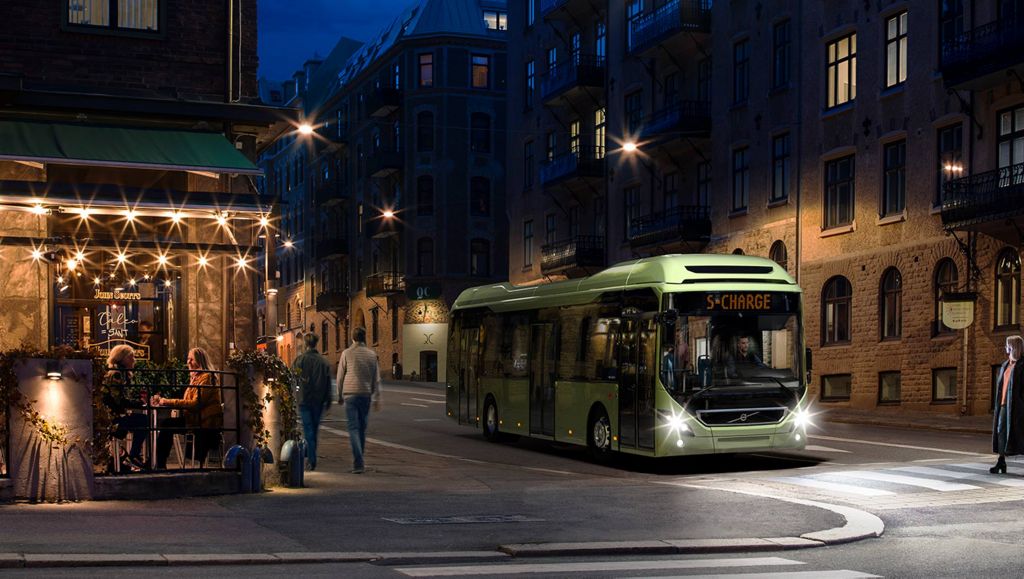Volvo’s new self-charging bus can now drive longer and emission-free on electricity


For the new Volvo S-Charge model range, one important upgrade is connectivity. With the application of Volvo’s system for geo-fencing, Volvo Zone Management, speeds of electric propulsion can now be extended. Depending on climate, topography, type of operation and battery state of charge, the Volvo S-Charge can run on electricity for up to 1 km at a time. The improvement also makes it possible for the operator to program the bus so it automatically switches to electric propulsion within selected areas and has its speed regulated without driver intervention. It is also possible to define zones for sustained self-charging, to ensure emission-free operation in an upcoming zero-emission zone.
“We are now expanding our customers’ possibility for harnessing the benefits of electric power while at the same time retaining the impressive flexibility offered by hybrid buses. The new S-Charge model range can be deployed on any route since no charging infrastructure is needed, which enables fast implementation and improved operational efficiency for our customers”, says Håkan Agnevall, President of Volvo Buses.
One other advantage is that the S-Charge models can be driven quietly, emission-free and energy-efficiently on electricity even before arriving at the bus stop, while at a standstill for boarding and exiting, and when leaving the bus stop. This makes it possible to not only reduce emissions, but also to create bus stops and zones where the buses run in silent and clean electric mode.
“The new S-Charge models are among Volvo’s cleanest buses and will reduce the carbon footprint by up to 40% compared to equivalent diesel buses. The S-Charge can also drive on biofuel, reducing CO2-emissions even more. It is probably the most fuel-efficient and reliable self-charging bus on the market”, says Håkan Agnevall.
Volvo’s S-Charge model range includes the Volvo B5L S-Charge chassis, optimized for hot markets in the Asia Pacific region.
Facts about Volvo’s S-Charge model range
Volvo’s S-Charge can run in emission-free electric mode, from start up to 50 km/h and also when the bus is at a standstill at the bus stop. In other situations, propulsion is handled by a small combustion engine.
Volvo’s S-Charge requires no charging infrastructure. The batteries are charged via the energy that is generated through brake energy recapturing. As a result, the S-Charge can be used on virtually any bus route both in urban areas and in the suburbs.
Gothenburg April 14, 2020
For further information, please contact:
Joakim Kenndal, Head of Media Relations, Volvo Bus Corporation, Phone +46 739-02 51 50 or e-mail joakim.kenndal@volvo.com